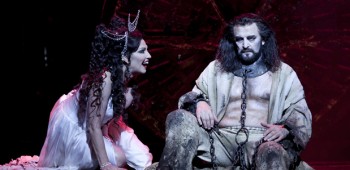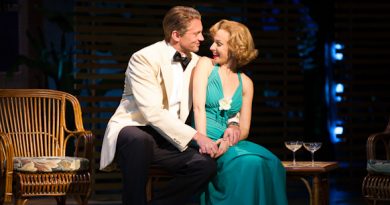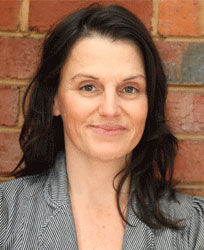Salome, delightfully debauched
Richard Strauss must have been delighted with himself in creating the opera Salome. Controversial, shocking and lust-laden, I can imagine it put sweat on the brows of many an audience member when it debuted in 1905. In fact, it’s as thoug
h its thread of dark humour mimics Strauss’s pleasure at the dismay that his debauched themes would rouse in people.

Salome’s central theme is power in its many guises – lust, greed and violence – and the narrative twists and turns to demonstrate how those in power can also be rendered powerless. Here we witness the King, stepfather to Salome, who is omnipotent in his kingdom and yet remains subservient to his lust for Salome. Likewise Salome, powerful as the ultimate object of desire, is rejected by a holy man who resists her advances leading to his bloody beheading.
What’s particularly interesting about Salome is that it was written at a time when women were beginning to question their role in society. It has been said that Salome is a symbol, a projection if you like, of men’s fear of women having power; therefore, the character embodies a femme fatale like quality. Having said that, none of the characters are particularly likeable in their demonised versions of humanity, which lends more weight this deliciously macabre opera.
Strauss’s cinematic score in Salome is sublime. It’s a spectacular juxtaposition of light and darkness that ebbs and flows throughout the operatic, clashing for dramatic effect. It demands every bit of your attention and marks the present while foretelling the inevitability that this unrequited love doesn’t ends well.
Opera Australia has re-imagined hell on earth for this opera, which is fitting for this kind of narrative. An opulent banquet table sits top of stage where large animal carcasses hang in a line above as a symbol of the cruelty that greed engenders. The blood stained stage at the forefront brings forth images of a slaughterhouse echoing death while dramatic lighting enhances the gruesome stage elements.
There’s so many great things to say about this opera but I don’t want to spoil it for you. The Dance of the Seven Veils alone is enough to get your money’s worth, not to mention the stunning performances by Cheryl Baker as Salome and Jacqueline Dark as Herodias. And if the women next to me tut-tutting the burlesque elements of this opera isn’t a good enough reason to see this opera, then I don’t know what is.


